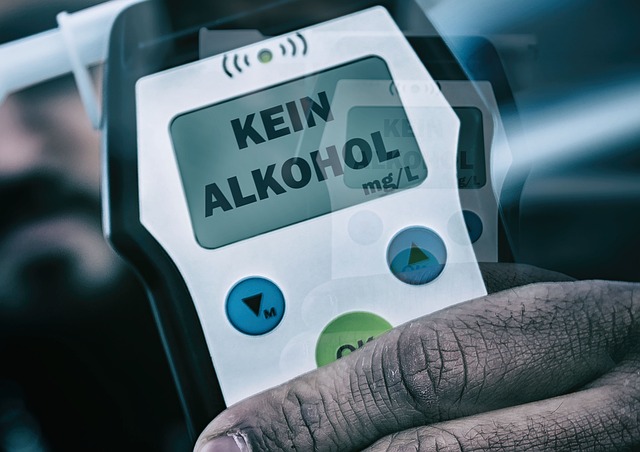Understanding your legal rights during field sobriety tests is crucial for fair treatment by law enforcement. In the U.S., you have the right to remain silent, refuse searches without a warrant, and clear instructions on field sobriety tests. Stay calm, politely decline testing if uncomfortable, and document encounters, including audio/video recordings. After a traffic stop, consult an attorney if your rights during field sobriety tests were violated, especially for DUI/DWI charges. Prompt legal counsel ensures a thorough investigation and protects your rights throughout the process.
“Are you aware of your rights during a traffic stop? This comprehensive guide breaks down the essential legal aspects every driver should know. From understanding field sobriety tests and silencing your rights, to documenting encounters and seeking counsel post-stop, we navigate the complexities. Learn how to protect yourself while ensuring fair treatment. Discover the importance of knowing your rights during these interactions—a crucial step in maintaining your freedom and peace of mind.”
- Understanding Your Legal Rights During Traffic Stops
- Field Sobriety Tests: What to Expect and How to Respond
- The Importance of Remaining Silent: Know Your Constitutional Rights
- Documenting the Encounter: Taking Notes and Recording Interactions
- When to Seek Legal Counsel After a Traffic Stop
Understanding Your Legal Rights During Traffic Stops

During a traffic stop, it’s crucial to understand your legal rights to ensure fair and respectful treatment from law enforcement. In the United States, for instance, drivers are protected by the Fourth Amendment, which safeguards against unreasonable searches and seizures. This means you have the right to remain silent and refuse to consent to searches unless they are supported by a warrant or meet specific exceptions.
Additionally, your rights extend to field sobriety tests. These tests, often administered to assess impairment, must follow strict protocols. You have the right to understand the nature of each test and its potential consequences. Law enforcement officers should provide clear instructions and allow you to perform the tests in a manner that ensures accuracy and avoids coercion. Remember, knowing your rights can help protect you during these interactions.
Field Sobriety Tests: What to Expect and How to Respond

During a traffic stop, officers may request that you perform field sobriety tests to assess your level of impairment. These tests are designed to identify signs of drunk or drugged driving and can include tasks like walking in a straight line, reciting the alphabet, or performing the one-leg stand. It’s important to remember your rights during field sobriety tests. You have the right to remain silent; anything you say can be used against you in court. You also have the right to refuse these tests, though refusing may impact your ability to drive and could lead to further consequences.
When facing a field sobriety test, stay calm and polite. Explain that you understand these tests are standard procedure but politely decline to perform them if you feel uncomfortable or believe they are inaccurate. You can request a different officer for the tests or an attorney before proceeding. Remember, your goal is to protect your rights during field sobriety tests while also ensuring your safety and understanding of the situation.
The Importance of Remaining Silent: Know Your Constitutional Rights

Remaining silent is a crucial aspect of protecting your rights during a traffic stop. In the United States, you have the constitutional right to remain silent under the Fifth Amendment. This means you do not have to answer any questions that could incriminate you, especially during field sobriety tests. Speaking up may inadvertently provide law enforcement with evidence against you, so it’s best to exercise your right and decline to answer.
Knowing and understanding your rights is empowering. If an officer requests you perform field sobriety tests, like the one-leg stand or walk and turn, you can politely refuse, stating your desire to remain silent. You are allowed to ask if your questions are related to operating a vehicle safely rather than as part of a criminal investigation. This knowledge ensures that any interactions with law enforcement during a traffic stop are conducted within the boundaries of your constitutional rights.
Documenting the Encounter: Taking Notes and Recording Interactions

During a traffic stop, it’s crucial to be aware of your rights and document the encounter accurately. Taking notes and recording interactions with law enforcement can serve as valuable evidence and help ensure your rights are respected. Note down details such as the date, time, location, officer’s name, badge number, and any notable events during the stop. If possible, record audio or video of conversations using your phone—be sure to inform the officer that you’re recording for your own protection.
Remember that your right to remain silent should be exercised during field sobriety tests, and any statements made can be used against you in court. Keep a mental or written record of each test administered, including how it was presented and your responses. This documentation can help clarify your actions and the officer’s conduct if there are any misunderstandings or disputes later.
When to Seek Legal Counsel After a Traffic Stop

After a traffic stop, it’s crucial to understand your rights and know when to seek legal counsel. If you believe your rights have been violated during the stop or subsequent field sobriety tests (FSTs), consulting with an attorney is essential. An experienced lawyer can help you navigate the complexities of traffic laws and ensure your rights are protected. They can review the evidence collected by law enforcement, assess the legality of the stop and any FSTs administered, and advise you on the best course of action.
Seeking legal counsel promptly allows for a thorough investigation into potential issues with the stop, including improper conduct by officers or faulty procedures used during sobriety tests. This step is particularly important if you face charges like DUI or DWI, as proper procedure adherence is key to building a solid defense. An attorney can guide you through the legal process, ensuring your rights are not infringed upon and helping you make informed decisions throughout.
Knowing your rights during traffic stops is an essential step in protecting yourself and ensuring fair treatment. By understanding the legal aspects outlined in this article, from field sobriety tests to your right to remain silent, you can navigate these interactions with confidence. Always remember to document encounters and consider seeking legal counsel if your rights are violated, especially regarding field sobriety tests. Stay informed and assert your constitutional rights to ensure a just experience during traffic stops.






